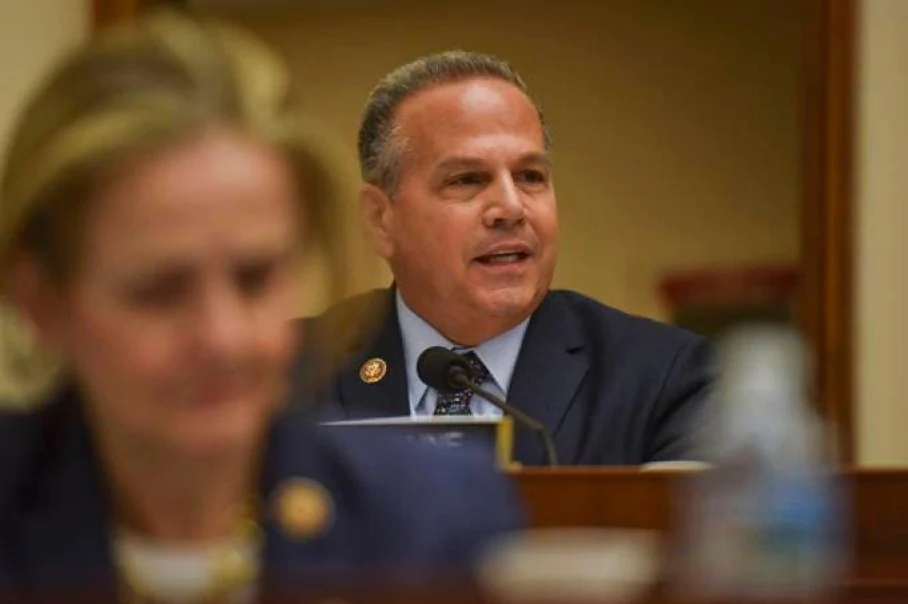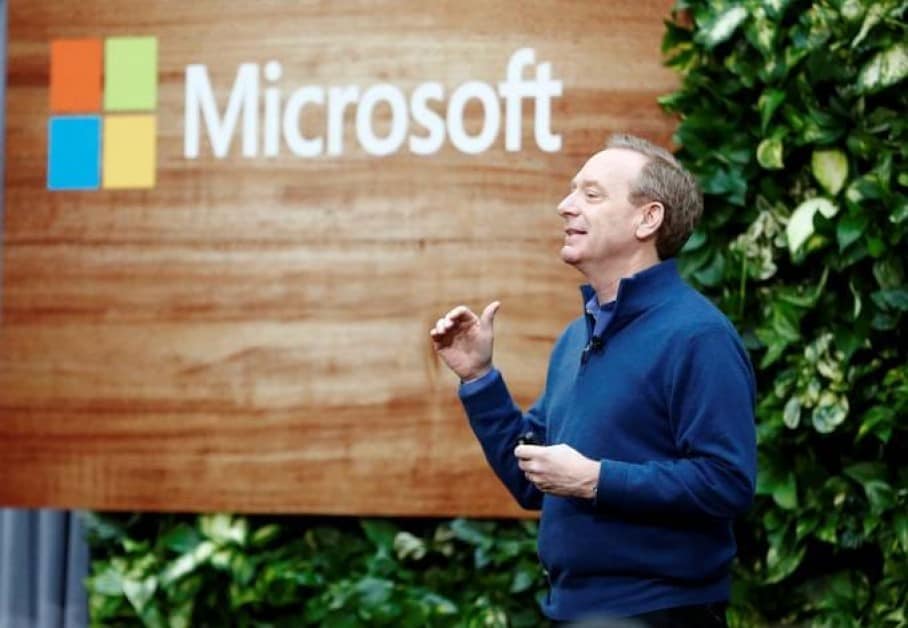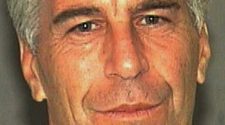House Speaker Nancy Pelosi (D-Calif.). (Matt Rourke/AP)
Ctrl + N
Nancy Pelosi’s attacks on Facebook highlight how furious Democrats have become with the social network.
The most powerful Democrat in the House accused the company with an office in her home district of cozying up to President Trump during a news conference yesterday.
“All they want are their tax cuts and no antitrust action against them,” Pelosi said when asked whether Facebook was too powerful. “And they schmooze this administration in that regard because so far that’s what they have received.”
The House speaker’s words highlight how tensions between the tech titan and Democrats have escalated in the week since Facebook defied Democrats’ calls and announced it wouldn’t police the accuracy of ads run by politicians on their site. Democrats warned the policy will benefit President Trump in 2020, especially because his campaign has already been able to run unchecked ads making misleading claims about former vice president Joe Biden.
For years, Facebook and other large Silicon Valley companies were widely viewed as Democratic darlings. But concerns that Facebook didn’t do enough to prevent Russian interference during the 2016 election marked a key turning point, and the company’s positions on fighting falsehoods have only strained it further.
Pelosi also ripped Facebook as “shameful,” “abusive,” “irresponsible” and intent on being “accomplices for misleading the American people with money from God knows where.” Here’s a video of her remarks from KPIX, CBS’s Bay Area affiliate, on YouTube:
Pelosi’s vitriol is in line with recent attacks on Facebook from leading Democratic presidential candidates. Her remarks were prompted by recent comments that Pete Buttigieg, the former mayor of South Bend, Ind., made to the New York Times editorial board about Facebook’s unbridled power. “No one company and no one person should have the kind of power that they’ve accumulated,” he said.
Democrats across the political spectrum have united against the Menlo Park, Calif., titan. Sen. Elizabeth Warren (D-Mass.), who wants to break up the social media giant, and Biden have both warned that Facebook’s political ad policies stand to benefit Trump.
“Mark Zuckerberg and Facebook have admitted they fear a Warren presidency because they know Elizabeth will hold them accountable and break them up,” Saloni Sharma, a spokeswoman for the Warren campaign, said in a statement to The Technology 202. “It’s no surprise they have tried to curry favor with the Trump Administration and have helped his re-election campaign by letting him run Facebook ads containing outright lies.” (Facebook chief executive Mark Zuckerberg has said a Warren presidency would result in an antitrust challenge for Facebook, according to leaked audio obtained by the Verge).
Facebook is currently battling antitrust scrutiny on multiple fronts, as House lawmakers, the Department of Justice, the Federal Trade Commission and states attorneys general all open probes into the power of tech titans. Pelosi’s comments come after some Democratic political commentators have questioned whether Facebook’s position on fact-checking politicians was motivated by its concern about the Trump administration taking antitrust action. From Brian Beutler, editor-in-chief of Crooked Media, a political media company founded by Obama administration alumni:
Nick’s tweet gets at something Congress should investigate: how explicitly did Trump link allowing him to lie in online ads to allowing Facebook to avoid antitrust action? Trump wanted Zuck to do him a favor, though, and Zuck delivered. https://t.co/oJfPxU6yCN
— Brian Beutler (@brianbeutler) January 9, 2020
Facebook has said it first implemented its policy of not fact-checking political ads in September 2018, months before antitrust scrutiny of Facebook ramped up in Washington. But the debate over the move didn’t escalate until this fall, when Nick Clegg, Facebook’s vice president of global affairs and communications, made a speech saying Facebook didn’t want to play the role of refereeing politicians’ speech. Facebook has defended its stance as a matter of free speech and argued that no single private company should have the power to police political speech.
Pelosi’s attacks come just a week after the New York Times exposed a memo from a top Facebook executive warning the company not to tilt the scales against Trump. He said that as a liberal, he was tempted to use the platform against Trump.
“As tempting as it is to use the tools available to us to change the outcome, I am confident we must never do that or we will become that which we fear,” wrote Andrew Bosworth, the head of Facebook’s virtual and augmented reality division.
Trump and Facebook have had a rocky relationship, as the president has frequently accused the social network and other companies of anti-conservative bias. But there are signs tensions have eased between conservatives and the company in recent months.
The Trump campaign has praised Facebook’s decision not to fact check politicians’ ads. Trump and Zuckerberg also had two meetings in a two month-stretch last year, including an initially undisclosed private dinner with venture capitalist Peter Thiel.
Zuckerberg told CBS in an interview Trump did not “lobby” him during the undisclosed meeting.
“We talked about a number of things that were on his mind. And some of the topics that you’d read about in the news around our work,” Zuckerberg said.
BITS, NIBBLES AND BYTES

Congressman David N. Cicilline (D-RI) attends a House Judiciary Committee (Photo by Jahi Chikwendiu/The Washington Post)
BITS: Today’s field hearing in Colorado puts House lawmakers a step closer to wrapping up their investigation into Big Tech’s power. But the top Democrat helming the probe says the committee still needs to hear from key chief executives.
“It’s always been my view that it is difficult to imagine we’ll complete this investigation without hearing from the CEOs of some of the major technology companies,” David Cicilline (D-R..I), the chair of the House Judiciary antitrust subcommittee, told my colleague Tony Romm in an interview. “These CEOs are really the decision-makers, and there’s a tremendous consolidation of authority.”
Advocates for greater antitrust scrutiny agree. Sally Hubbard, director of enforcement at the Open Markets Institute, an organization backed by groups advocating fbreaking up Big Tech, said it would show they’re accountable.
“I think it’s important for the CEOs to appear in a public hearing to make clear they are accountable to our democratically-elected representatives and to the American public,” she told me. “What’s the excuse for the CEOs to not testify? We didn’t get to vote for Mark Zuckerberg.”
And the clock is ticking as Cicilline intends to wrap up the investigation in the first part of this year. Already, the congressman has said the review has uncovered concerning behavior.
“There’s no question that these markets are not functioning properly and there is an absence of significant competition, there is behavior that can only be described as anti-competitive,” he said.
But the committee’s top Republican took a more cautious tone, saying he never started the process believing tech companies need to be broken up.
“We need to continue to move ahead but frankly move at a cautious pace,” Doug Collins (R-Ga.) told Tony.
For now, Collins said it’d be a “waste of time” to haul in the chief executives to testify. “CEOs are great public spokesmen but they’re also going to be very limited in their day-to-day knowledge … Later on there may be a time… I have never been an advocate for a show hearing.”
(The House antitrust subcommittee will today host a hearing on small tech companies’ competition concerns. You can read Tony’s preview and tune in here at noon Eastern.)

WhatsApp and Facebook app icons. (Patrick Sison/AP)
NIBBLES: Facebook hit pause on its efforts to sell ads on WhatApp, the Wall Street Journal’s Jeff Horwitz and Kirsten Grind report. The company is reversing a controversial push to monetize the messaging app — which caused tensions contributing to the departure of WhatsApp’s co-founders more than 18 months ago.
The company axed a team in charge of integrating ads into WhatsApp, the Journal reports. The company will instead focus on enterprise features allowing businesses to better communicate with customers. Users in developing nations already use the platform for commerce and customer service. WhatsApp is also working on rolling out payment technology in India.
Facebook purchased WhatsApp for $22 billion in 2014, but the company has yet to realize a major return on investment from the deal, despite amassing more than 1.5 billion users. The owners opposed incorporating ads in the product, forbidding them from the app’s terms of service in 2016. Facebook’s core platform, its biggest source of ad revenue, has seen slower growth than WhatsApp.

Microsoft President Brad Smith. (Lindsey Wasson/Reuters)
BYTES: Microsoft plans to remove more carbon than it emits by the end of the decade, the company announced yesterday. The pledge tackles climate change more aggressively than most of its tech rivals, my colleague Jay Greene reports.
Microsoft’s pledge also includes removing all the carbon emissions the company has generated since its founding in 1976 by 2050. The pledge goes further than Seattle rival Amazon, which committed this fall to becoming carbon neutral by 2030. (Amazon CEO Jeff Bezos owns The Washington Post).
But both companies still face scrutiny from employee activists who have protested their employers’ work providing technology to oil and gas companies. Microsoft will not count emissions generated by companies that use its technology to find oil and gas toward its emissions goal, Jay reports.
“We are a company that wants to solve problems by working with people and by helping them make the transitions the world needs to make, rather than by cutting them off and denying them tech writ large,” Microsoft President Brad Smith said yesterday, adding that the company would work to move oil and gas companies to cleaner forms of energy.
Microsoft has not committed to an independent audit of its progress in meeting its goals and declined to share the cost of the project.
PUBLIC CLOUD
— News from the public sector:
PRIVATE CLOUD
— News from the private sector:
#TRENDING
— Tech news generating buzz around the Web:
CHECK-INS
— Today:
- The House Antitrust Subcommittee will host a field hearing on the role of competitors in the digital economy at 10 a.m. at the University of Colorado Law School in Boulder.
— Coming up:
- The Senate Commerce Committee will host a hearing on “the 5G Workforce and Obstacles to Broadband Deployment” at 10 a.m. on Wednesday.
- Silicon Flatirons will host its “Technology Optimism and Pessimism” conference Feb. 9 and 10 at the University of Colorado Law School in Boulder, Colorado. Speakers include FCC Michael O’Rielly and FTC Commissioner Rohit Chopra.
- Mobile World Congress takes place Feb. 24 to 27 in Barcelona
















